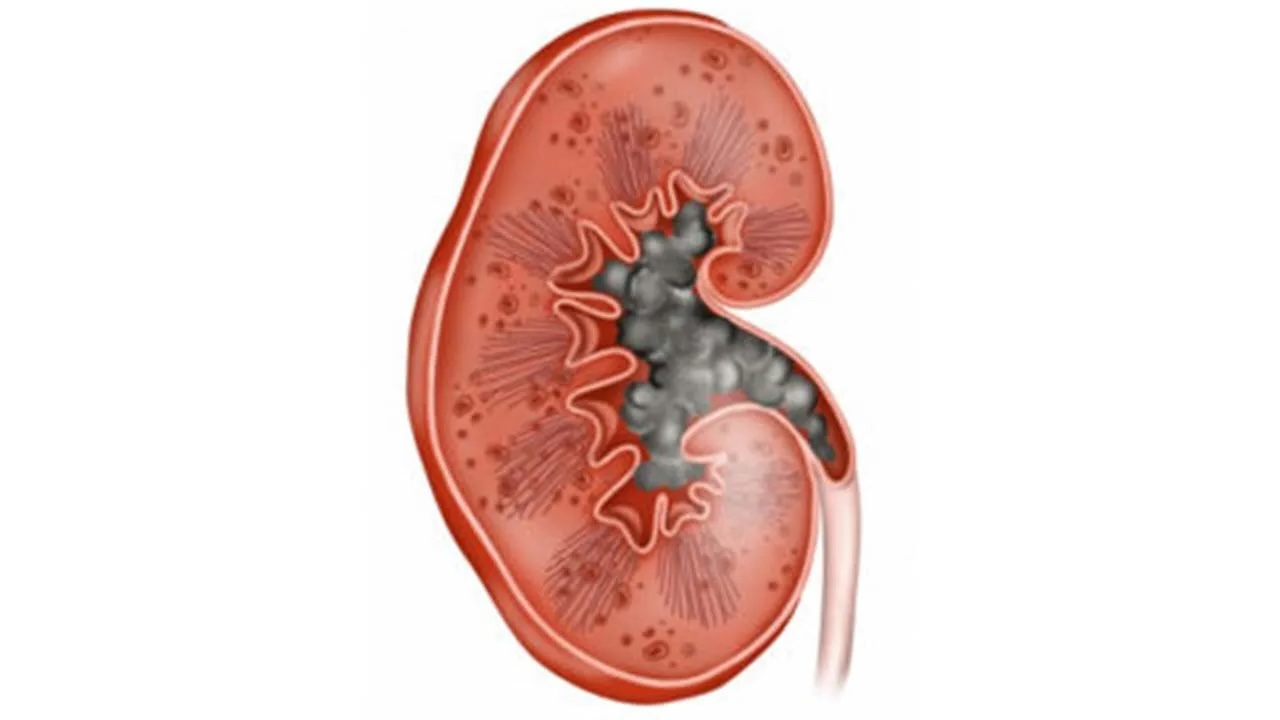
Nephrolithiasis, commonly known as kidney stones, affects millions worldwide. These hard deposits form inside kidneys, causing severe pain and discomfort. But what exactly causes these pesky stones? Kidney stones develop when minerals and salts in urine crystallize. Factors like dehydration, diet, obesity, and certain medical conditions can increase risk. Symptoms often include intense pain in the back or side, blood in urine, nausea, and frequent urination. Treatment varies from drinking lots of water to medical procedures. Preventing kidney stones involves staying hydrated, eating a balanced diet, and sometimes medication. Understanding nephrolithiasis can help manage and prevent this painful condition.
What is Nephrolithiasis?
Nephrolithiasis, commonly known as kidney stones, is a condition where hard deposits form inside the kidneys. These stones can cause severe pain and other complications. Here are some fascinating facts about nephrolithiasis:
-
Nephrolithiasis is derived from Greek words: "Nephros" means kidney and "lithos" means stone.
-
Kidney stones vary in size: They can be as small as a grain of sand or as large as a golf ball.
-
Four main types of kidney stones exist: Calcium oxalate, uric acid, struvite, and cystine stones.
Causes and Risk Factors
Understanding what causes nephrolithiasis can help in prevention and management. Here are some key causes and risk factors:
-
Dehydration is a major cause: Not drinking enough water can lead to concentrated urine, which increases the risk of stone formation.
-
Diet plays a significant role: High intake of salt, sugar, and protein can contribute to kidney stones.
-
Family history matters: If someone in your family has had kidney stones, your risk increases.
-
Certain medical conditions: Conditions like hyperparathyroidism and urinary tract infections can increase the likelihood of developing stones.
-
Obesity is a risk factor: Excess body weight can alter the acid levels in the urine, leading to stone formation.
Symptoms of Nephrolithiasis
Recognizing the symptoms early can lead to quicker treatment and less discomfort. Here are some common symptoms:
-
Severe pain: Often described as one of the worst pains, it usually starts in the back or side and can radiate to the lower abdomen and groin.
-
Blood in urine: Hematuria, or blood in the urine, is a common symptom.
-
Frequent urination: Feeling the need to urinate more often than usual can be a sign.
-
Nausea and vomiting: These symptoms often accompany the severe pain.
-
Fever and chills: If an infection is present, these symptoms may occur.
Diagnosis and Treatment
Diagnosing and treating nephrolithiasis involves several steps and options. Here’s what you need to know:
-
Imaging tests are crucial: CT scans, X-rays, and ultrasounds help in diagnosing kidney stones.
-
Urine tests: These can detect crystals, bacteria, and blood in the urine.
-
Blood tests: These help identify high levels of certain substances that can form stones.
-
Pain management: Over-the-counter pain relievers like ibuprofen can help manage the pain.
-
Hydration is key: Drinking plenty of water helps flush out small stones.
-
Medical procedures: For larger stones, procedures like lithotripsy, ureteroscopy, or percutaneous nephrolithotomy may be necessary.
Prevention Tips
Preventing nephrolithiasis involves lifestyle changes and dietary adjustments. Here are some effective prevention tips:
-
Stay hydrated: Aim to drink at least 8-10 glasses of water daily.
-
Limit salt intake: High salt levels can increase calcium in the urine, leading to stone formation.
-
Reduce oxalate-rich foods: Foods like spinach, nuts, and chocolate can contribute to calcium oxalate stones.
-
Eat calcium-rich foods: Contrary to popular belief, dietary calcium can help prevent stones by binding with oxalate in the intestines.
-
Limit animal protein: High protein intake can increase the risk of uric acid stones.
Interesting Facts
Here are some lesser-known but intriguing facts about nephrolithiasis:
-
Men are more prone: Men are more likely to develop kidney stones than women.
-
Geography matters: People living in hot climates are at higher risk due to increased dehydration.
-
Recurrence is common: Once you've had a kidney stone, there's a 50% chance of developing another within five years.
-
Dietary supplements can help: Citrate supplements can reduce the risk of stone formation.
-
Exercise can reduce risk: Regular physical activity helps maintain a healthy weight and reduces the risk of stones.
-
Certain medications: Drugs like diuretics and calcium-based antacids can increase the risk of stones.
-
Vitamin C supplements: High doses of vitamin C can increase oxalate levels in the urine.
-
Tea and coffee: These beverages contain oxalates, which can contribute to stone formation.
-
Cranberry juice: While good for urinary tract infections, it can increase the risk of calcium oxalate stones.
The Final Word on Nephrolithiasis
Nephrolithiasis, or kidney stones, can be a real pain—literally. Understanding the causes, symptoms, and treatment options is key to managing and preventing these pesky stones. Staying hydrated, maintaining a balanced diet, and knowing your family history can make a big difference. If you experience severe pain, blood in your urine, or frequent infections, don't ignore it. Seek medical advice promptly. Modern treatments like shock wave lithotripsy and ureteroscopy offer effective solutions, but prevention remains the best strategy. Remember, small lifestyle changes can have a big impact on your kidney health. Stay informed, stay healthy, and keep those kidneys stone-free!
Was this page helpful?
Our commitment to delivering trustworthy and engaging content is at the heart of what we do. Each fact on our site is contributed by real users like you, bringing a wealth of diverse insights and information. To ensure the highest standards of accuracy and reliability, our dedicated editors meticulously review each submission. This process guarantees that the facts we share are not only fascinating but also credible. Trust in our commitment to quality and authenticity as you explore and learn with us.
